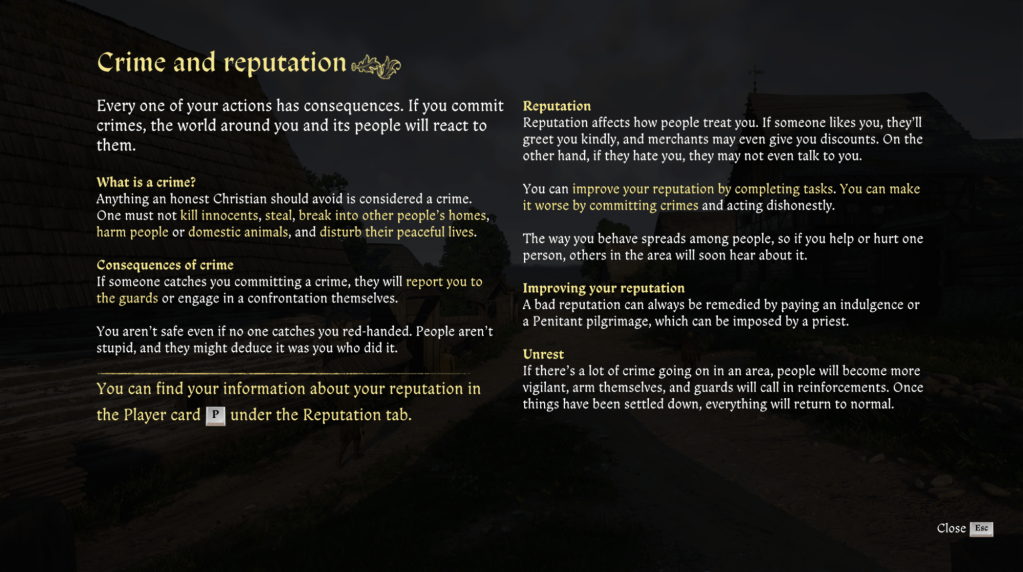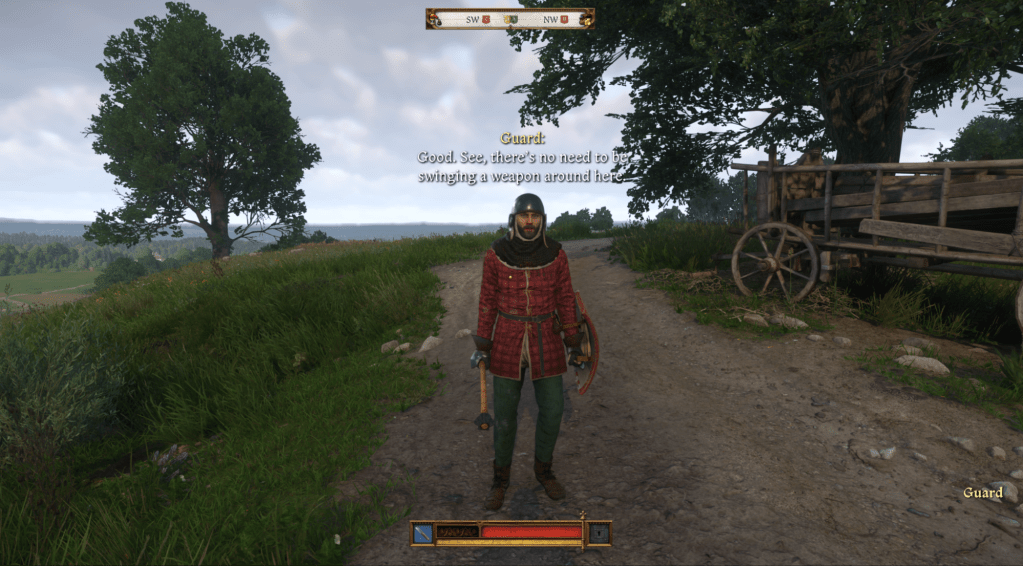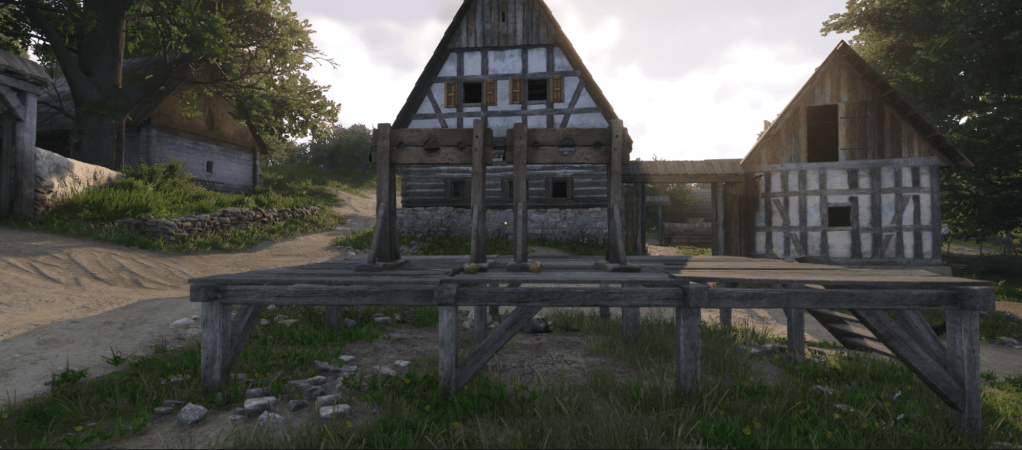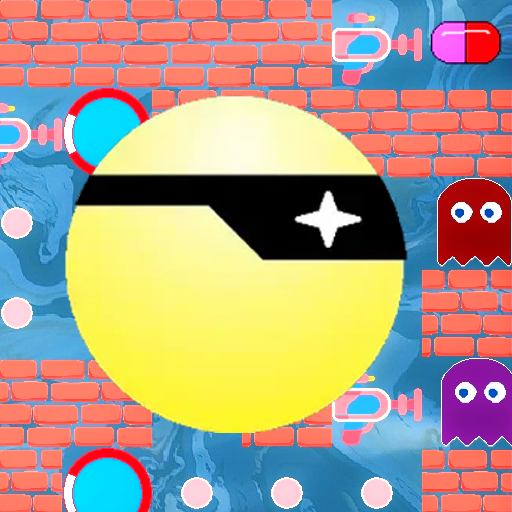How Crime and Punishment Work in Kingdom Come: Deliverance 2
In *Kingdom Come: Deliverance 2*, crime isn't just a minor hiccup—it's a pivotal element that can drastically alter how the world interacts with you. Whether you're caught stealing, trespassing, or even assaulting a peasant, the repercussions can be severe. Let's dive into how crime and punishment function within the game.
Recommended Videos Related: All Pre-Order Bonuses & Editions for Kingdom Come: Deliverance 2
How Crimes Work in Kingdom Come: Deliverance 2

The game classifies the following actions as illegal:
Murder – Taking the life of innocent NPCs. Theft – Pilfering from homes, shops, or unconscious NPCs. Lockpicking – Breaking into locked buildings or chests. Pickpocketing – Stealing directly from people. Assault – Attacking civilians or guards. Animal Cruelty – Harming domestic animals. Trespassing – Entering private areas without permission. Disrupting Order – Causing chaos in towns. Engaging in any of these acts can lead to suspicion, arrest, or worse. The reactions of guards and villagers vary based on the crime's severity.
What Happens When You’re Caught?

1. Pay the Fine
Paying a fine is the simplest way out. The fine's amount depends on the crime—stealing might set you back a few Groschen, but murder could drain your coffers or result in a harsher penalty.
2. Talk Your Way Out
With high Speech or Charisma skills, you might persuade guards to let you off the hook. This tactic is more effective for minor infractions; serious crimes are tougher to sweet-talk your way out of.
3. Run for It
Fleeing isn't ideal, but sometimes it's your only option. Guards will pursue you, and escaping will make you temporarily wanted. If you leave town and return later, you might still be recognized unless you change your appearance or bribe officials.
4. Accept the Punishment
If you can't pay and can't escape, you'll face the consequences. The punishment's severity correlates with your crime.
How Punishments Work in Kingdom Come: Deliverance 2

1. Pillory (Public Humiliation)
Minor offenses like trespassing, reckless behavior, or accidentally hitting an NPC might land you in the pillory for a few in-game days. This public shaming will damage your reputation and make you a laughingstock among NPCs.
2. Caning (Physical Punishment)
For mid-tier crimes like assault and theft, you'll face caning. This physical punishment involves public beating, which temporarily reduces your health and stamina.
3. Branding (Permanent Criminal Status)
Reserved for repeat offenders or serious crimes like murder or grand theft, branding leaves a permanent mark on your neck, labeling you a criminal. NPCs will treat you with suspicion, merchants may refuse to trade, and guards will keep a close watch, potentially attacking if you act suspiciously.
4. Execution (Game Over)
The ultimate penalty, execution, is reserved for the gravest crimes, such as multiple murders, and results in a game over.
Related: How to Get the Best Ending in Kingdom Come Deliverance 2
How Crime Affects Your Reputation
Your reputation is more than just a number; it directly impacts how people interact with you. Committing crimes can make townsfolk wary or even hostile.
How Reputation Works
Each town and faction tracks your reputation independently. A low reputation might lead to people refusing to talk, trade, or offer quests, while a high reputation can earn you discounts, additional dialogue, and unique opportunities. Guards may search you more frequently if they suspect you of past crimes. To mend a tarnished reputation, contribute to the community through favors, church donations, and fine payments. This system resembles the Honor mechanic in Red Dead Redemption 2.
How to Avoid Getting Caught
While the crime system is an integral part of KCD2, you can use it strategically. In this RPG, you're free to act as you please, but caution is key to avoid capture. Here are some tips to stay under the radar:
- Ensure no witnesses are around before committing a crime. If someone spots you, change your disguise immediately, perhaps by wearing a hat or different clothes.
- Commit crimes at night, when it's harder to be seen.
- Handle stolen goods carefully. Items marked as stolen in your inventory should be sold to fences or black-market dealers far from the crime scene, avoiding regular merchants to prevent detection.
That's how crime and punishment work in Kingdom Come: Deliverance 2.
- 1 Silent Hill 2 Remake Confirms Xbox, Switch Release in 2025 Feb 08,2025
- 2 Connect Asus ROG Ally to TV or Monitor: Easy Guide Apr 06,2025
- 3 Fix 'Can't Connect to Host' Error in Ready or Not: Quick Solutions Jun 13,2025
- 4 The Best Free Comic Book Sites and Apps in 2025 Mar 18,2025
- 5 Dragon Soul Tier List: Ultimate Guide May 12,2025
- 6 "Persona Games and Spin-Offs: Complete Chronological List" Apr 09,2025
- 7 How to Run JioHotstar on PC with BlueStacks Feb 28,2025
- 8 Assassin's Creed Shadows: Max Level and Rank Cap Revealed Mar 27,2025
-
Top Arcade Classics and New Hits
A total of 10
-
Addictive Arcade Games for Mobile
A total of 10
-
Android Apps for Video Content Creation
A total of 10











![Roblox Forsaken Characters Tier List [UPDATED] (2025)](https://img.actcv.com/uploads/18/17380116246797f3e8a8a39.jpg)
















